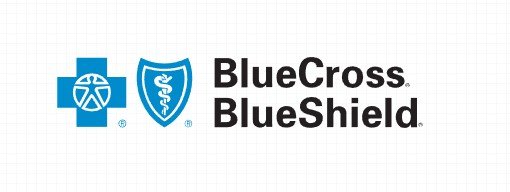
Blue Cross and Blue Shield (BCBS) is a federation of independent health insurance companies that provides coverage to millions of Americans. Founded in the early 20th century, BCBS has evolved into one of the largest and most recognized health insurance brands in the United States. Here’s a detailed overview of its history, structure, services, and impact on healthcare.
History
- Origins: The Blue Cross program began in 1929 when a Texas teacher named Walter L. Farmer partnered with a hospital to provide prepaid hospital care. The idea quickly spread, leading to the establishment of more programs across the country.
- Blue Shield: In 1939, Blue Shield was introduced to cover physician services. It was created in response to the rising costs of medical care and the need for a sustainable payment model for doctors.
- Merger: In 1982, the two programs, Blue Cross and Blue Shield, officially merged under the Blue Cross and Blue Shield Association (BCBSA).
Structure
- Federation of Companies: BCBS operates as a federation of 36 independent and locally operated companies. Each member company provides health insurance products and services tailored to their respective markets.
- Licensing: While the companies share the Blue Cross and Blue Shield branding, they operate under individual state licenses. This structure allows them to cater to local needs while adhering to federal regulations.
- National and International Presence: BCBS serves over 100 million members in the U.S. and has partnerships with international insurers, providing services to members traveling abroad.

Services and Products
BCBS offers a wide range of health insurance products, including:
- Individual and Family Plans: These plans are available for people purchasing insurance on their own, often through the Health Insurance Marketplace.
- Employer-Sponsored Plans: BCBS provides group health insurance plans for employers, catering to both small businesses and large corporations.
- Medicare: Many BCBS companies offer Medicare Advantage and Medicare Supplement plans, helping seniors manage their healthcare costs.
- Medicaid: Some BCBS companies participate in state Medicaid programs, providing coverage to low-income individuals and families.
- Specialty Products: These can include dental, vision, and pharmacy coverage, as well as wellness programs.
Impact on Healthcare
- Access to Care: BCBS plays a significant role in expanding access to healthcare, offering a variety of plans that cater to different demographics and needs.
- Healthcare Innovations: The organization has been involved in numerous initiatives to improve healthcare quality, promote value-based care, and address social determinants of health.
- Community Support: BCBS companies often engage in philanthropic efforts, supporting local health initiatives, education, and wellness programs.
Challenges and Criticism
Like many large health insurance providers, BCBS faces challenges, including:
- Rising Healthcare Costs: The increasing cost of healthcare has been a persistent challenge, affecting premiums and accessibility.
- Regulatory Scrutiny: BCBS has faced regulatory scrutiny regarding pricing practices and the adequacy of coverage.
- Competition: The health insurance market is highly competitive, with new entrants and alternative models (like direct primary care) challenging traditional insurance models.
Future Directions
As the healthcare landscape continues to evolve, BCBS is likely to focus on:
- Digital Transformation: Leveraging technology to enhance member experiences, streamline claims processing, and improve care coordination.
- Value-Based Care: Continuing to shift towards payment models that prioritize health outcomes rather than service volume.
- Addressing Health Disparities: Increasing efforts to tackle disparities in health access and outcomes, particularly among underserved populations.
Conclusion
Blue Cross and Blue Shield remains a cornerstone of the U.S. healthcare system, providing coverage to millions and continually adapting to the changing healthcare environment. With a strong emphasis on community service, innovation, and member support, BCBS plays a crucial role in shaping the future of healthcare in America.

· What is Blue Cross and Blue Shield?
- BCBS is a federation of independent health insurance companies providing coverage to millions of Americans.
· How does Blue Cross and Blue Shield work?
- BCBS operates through local affiliates that offer various health insurance plans, including individual, family, employer-sponsored, Medicare, and Medicaid options.
· What types of plans does BCBS offer?
- BCBS offers individual and family plans, employer-sponsored plans, Medicare Advantage, Medicare Supplement plans, and Medicaid options.
· Is Blue Cross and Blue Shield accepted everywhere?
- Acceptance varies by plan and location. It’s important to check with your specific BCBS provider and local healthcare providers.
· How do I find a doctor who accepts Blue Cross and Blue Shield?
- You can use the BCBS website’s provider search tool or contact customer service for a list of in-network doctors.
· What is the difference between Blue Cross and Blue Shield?
- Blue Cross typically covers hospital services, while Blue Shield covers physician services. They merged but still maintain these distinctions in some areas.
· Can I use Blue Cross and Blue Shield outside of my state?
- Yes, BCBS offers nationwide coverage, but benefits may vary based on the plan and provider networks.
· How do I file a claim with Blue Cross and Blue Shield?
- Claims can usually be filed online through your BCBS member account or by submitting a paper claim form to your local BCBS office.
· What is the Blue Cross Blue Shield Association?
- It’s the organization that oversees the independent BCBS companies, providing guidelines and support while allowing each to operate independently.
· Are BCBS plans affordable?
- Costs vary by plan and location, but BCBS often provides a range of options to fit different budgets and needs.







